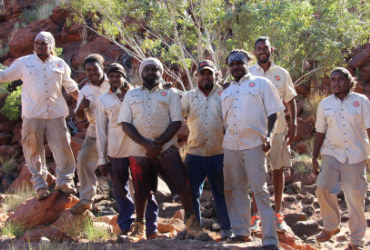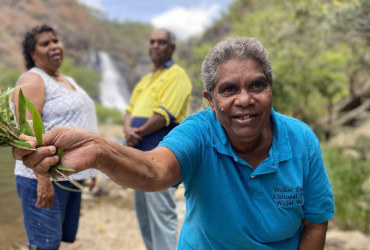
Articles
- Home
- Articles

Fostering Indigenous Empowerment: The Emergence of Aboriginal Enterprises
Australia's Indigenous people have a rich cultural heritage that stretches back tens of thousands of years, and their connection to the land is profound. In recent years, there has been a growing movement to support and promote Aboriginal businesses, which play a vital role in both economic development and cultural preservation. In this blog article, we explore the rise of Aboriginal businesses and their significance.
Aboriginal entrepreneurship is not a recent phenomenon. Indigenous Australians have been trading and conducting business for millennia, using their unique knowledge of the land and its resources. However, the contemporary Aboriginal business sector is gaining momentum, driven by a desire to create sustainable economic opportunities and promote cultural authenticity.
Aboriginal businesses are making their mark in various sectors, including:
Art and Culture: Indigenous art is internationally renowned, and many Aboriginal artists and artisans have established successful businesses, producing paintings, sculptures, textiles, and more.
Tourism: Aboriginal-owned tourism operators offer immersive cultural experiences, guided tours of traditional lands, and opportunities for visitors to learn about Indigenous history and customs.
Agriculture and Bush Foods: Indigenous communities are embracing traditional knowledge to cultivate native foods and medicinal plants, contributing to the emerging bush food industry.
Construction and Infrastructure: Aboriginal-owned construction firms are involved in infrastructure development, providing job opportunities and infrastructure solutions to remote communities.
Retail and Fashion: Indigenous designers and entrepreneurs are creating contemporary fashion and lifestyle brands that incorporate traditional elements.
The economic empowerment of Aboriginal communities through business is a multifaceted achievement:
Job Creation: Aboriginal businesses generate employment opportunities, particularly in remote and underserved regions where jobs can be scarce.
Skill Development: Indigenous entrepreneurs often provide training and skill development programs, equipping community members with valuable expertise.
Wealth Generation: The success of Aboriginal businesses contributes to wealth generation within Indigenous communities, which can be reinvested in education, healthcare, and social programs.
One of the most significant aspects of Aboriginal businesses is their role in cultural preservation:
Cultural Exchange: Through tourism and cultural experiences, Aboriginal businesses offer a platform for sharing traditions, stories, and knowledge.
Artistic Expression: Aboriginal artists use their work to convey cultural stories and maintain the continuity of their artistic traditions.
Connection to Land: Many businesses are deeply rooted in the land, allowing Indigenous communities to maintain their connection to ancestral territories.
While the Aboriginal business sector continues to thrive, it faces challenges such as access to capital, market access, and navigating complex regulations. Nevertheless, various government initiatives, grants, and organizations provide support and resources to Aboriginal entrepreneurs, helping them overcome these obstacles.
It's essential to recognize the diversity within the Aboriginal business sector. From urban entrepreneurs to remote community-owned enterprises, each business brings a unique perspective and cultural influence to the Australian business landscape.
Aboriginal businesses are not only contributing to economic growth but also preserving and celebrating Australia's Indigenous heritage. By supporting these businesses, we not only empower Indigenous communities but also gain a deeper understanding of their profound cultural and spiritual connection to the land. As consumers, travellers, and investors, we have the opportunity to engage with and support Aboriginal businesses, contributing to a more inclusive and culturally rich Australia.




